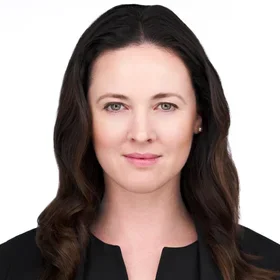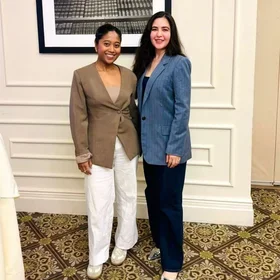Professionals in the healthcare field, including clinicians, often join the Columbia University Narrative Medicine graduate program to bolster their current practices and help them better connect with their patients.
Columbia’s pioneering program, founded at the University in 2009 by Dr. Rita Charon, seeks to transform healthcare one story at a time, and many alumni from the program are taking the skills they learned in the program and spreading the practice around the world.
We talked to a few of these alums about what brought them to the program and how they’re now implementing narrative medicine in their work.
Discovering the Narrative Medicine Program
Juan Carlos Claro, M.D., M.S.; FACP, (’16SPS), remembers the exact moment when he first felt “called” to pursue narrative medicine.
“While I was training in evidence-based medicine at the Pontificia Universidad Catolicain Santiago, Chile, my boss asked me to attend a workshop in New York City in August 2011. I was in a small group facilitated by Dr. Rita Charon. Listening to her talk about narrative medicine made me realize that I wanted to learn as much as possible about the practice,” remarked Claro. “I returned to Chile and read as much as I could about it. When I learned about the program at Columbia, I knew I had to pursue it.”
Similarly, while working as a doctor in Nigeria, Olamide Adejumo, M.B.Ch.B, M.S. (’22SPS) was looking to find ways to incorporate the human experience of illness into clinical practice when he found Columbia’s graduate program. “The program offered a structured approach to integrating storytelling into healthcare, which I believed could enhance the patient-doctor relationship and improve health outcomes,” said Adejumo.
Mohamed Diriye, BMMS, M.S., (’22SPS), a physician in Saudi Arabia, wanted to improve his writing skills in English. It was his fourth language behind Somali, Swahili, and Arabic. Diriye took courses in Columbia’s School of Public Health (MSPH) because of his interest in healthcare but then started writing stories in Arabic about his own patients.
“I began to research whether there was a way that I could work on my English here and also combine my love of storytelling and medicine,” said Diriye. “I couldn’t believe it when I found this incredible program in narrative medicine that would allow me much more exploration.”
Bringing Narrative Medicine Back Home
Claro now practices medicine in Chile and teaches narrative medicine at the Universidad Catolica de Chile to medical students and conducts seminars for interns and residents during the year. In 2019, he traveled to the Tecnologico de Monterrey University in Mexico for a weekend-long seminar on narrative medicine.
In Nigeria, Adejumo has been deeply involved in developing and implementing community-based health initiatives, particularly for diabetes and other non-communicable diseases. He also published an article about the impact of religion and culture on diabetes care in Nigeria and another that examines how narrative practices can improve race-based conversations.
In Saudi Arabia, Diriye often has a line of patients waiting to see him.
“Let the patient tell the story of their life in their chosen language in the time they need to tell it,” he said. Diriye is part of a group that helped get cinemas opened in Saudi Arabia in 2018, which had previously been banned for 35 years.
Working Toward a Better Future
In addition to practicing medicine and teaching narrative medicine to medical students in Chile, Claro is now a faculty member in a first-of-its-kind master’s program in graphic medicine in Spain. Similar to narrative medicine, graphic medicine seeks to bridge the patient-clinician divide using the medium of comics, graphic novels, and infographics exclusively.
Adejumo recently partnered with a Canadian-based consulting firm to establish Motivar Consulting LLC. “Together, we are using narrative medicine to support non-profit organizations, as well as small/medium scale minority owned businesses, helping them leverage the power of storytelling and reflective practices to achieve their goals while fostering an empathetic, inclusive, and resilient workplace culture.”
Diriye is pushing to get medical stories shown at the recently-opened cinemas in Saudi Arabia. “As the country opens up and allows for people to take in new cultural experiences, we want to have two films a year about stories from our clinic to help viewers understand that experience, Diriye said. “Media can create sympathy and empathy, and I believe in the power of story.”
About the Program
Columbia University’s Master of Science in Narrative Medicine prepares health professionals, writers, and scholars to apply the skills and values of narrative understanding to improve outcomes for both patients and caregivers. It offers a rigorous and in-depth study of close reading of creative texts, illness and disability narratives, narrative ethics, philosophy, creative writing, and other perspectives.


